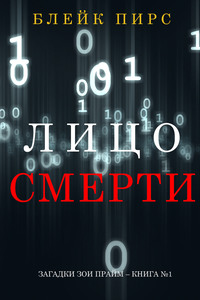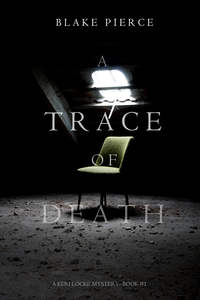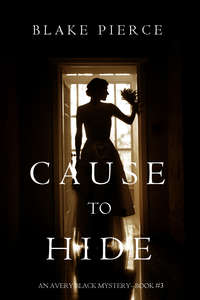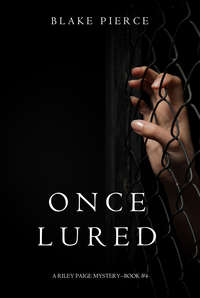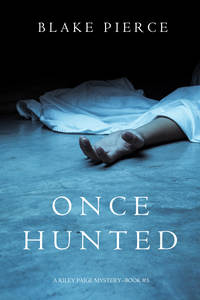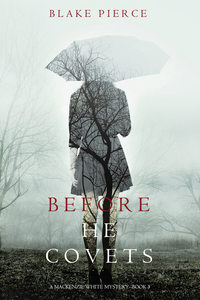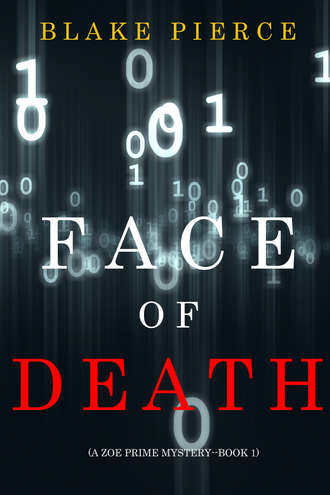 полная версия
полная версияFace of Death
Shelley moved quickly opposite her, spreading out some of the photographs they already had, then lifting the files from the other cases.
“We don’t have to talk about it,” she said, softly. “I’m sorry. You don’t know me yet.”
That yet was ominous: it implied a time, even if it was in the distant future, when Zoe would be expected to trust her enough. When she would be able to spill all of the secrets locked inside of her since she was just a child. What Shelley did not know, could not guess from her gentle probing, was that Zoe was not going to tell anyone what had happened in her childhood—ever.
Except maybe that therapist that Dr. Applewhite had been trying to get her to see.
Zoe pushed it all away to give her partner a tight smile and nod, then took one of the files from her hands. “We should go over the previous cases. I will read this one, and you can read the other.”
Shelley retreated to a chair on the opposite side of the table, looking at the images in the first file as they spread across the table, while chewing on one of her fingernails. Zoe tore her gaze away and focused on the pages in front of her.
“The first victim, killed in an empty parking lot outside a diner which had closed half an hour before,” Zoe read aloud, summarizing the contents of the report. “She was a waitress there, a mother of two with no college education who had apparently stayed in the same area for her whole life. There was no sign of any forensic evidence of value at the scene; the methodology was the same, death by the wire and then the careful sweeping away of footprints and marks.”
“Nothing to help us track him down, yet again,” Shelley sighed.
“She had been locking up the place after cleaning up, on her way home after a long shift. The alarm was raised fairly swiftly when she did not arrive home as usual.” Zoe flicked ahead to the next page, scanning the contents for value. “Her husband was the one to find her—driving out to look after she failed to answer her phone. There is a strong possibility that he contaminated evidence by grasping hold of his wife’s body upon the discovery.”
Zoe looked up, satisfied that this case was as empty of clues as the other. Shelley was still concentrating, playing with that pendant on her chain again. It was swallowed by her thumb and finger, small enough to disappear completely behind them.
“Is that a cross?” Zoe asked, when her new partner finally looked up. It was something to chat about, she thought. Fairly natural for an agent to speak to her partner about the jewelry she habitually wore, as it seemed she did. Right?
Shelley looked down at her chest, as if she had not realized what her hands were doing. “Oh, this? No. It was a gift from my grandmother.” She moved her fingers away, holding it out so that Zoe could see the arrow-shaped gold pendant, complete with a tiny diamond set into the pointed head. “Lucky thing that my grandfather had good taste. It used to be hers.”
“Oh,” Zoe said, feeling a little relief wash over her. She had not realized how much tension she had been holding since she had first noticed Shelley pull out the chain and play with it. “An arrow for true love?”
“That’s it.” Shelley smiled. Then she furrowed her brow slightly, obviously having picked up on the shift in Zoe’s mood. “Were you worried about me being overly religious or something?”
Zoe cleared her throat slightly. She had barely even recognized in herself that that was her reason behind asking. But of course it was. It had been a long time since she was that shy little girl with an overzealous God-fearing mother, but she still carried a fair amount of caution around people who considered the church to be the most important thing in their lives.
“I was just curious,” Zoe said, but her voice was tight, and she knew it.
Shelley frowned, leaning over to pick up the next file from the table. “You know, we’re going to have to spend a lot of time working together if we stay partners,” she said. “Maybe it will go a little smoother if we don’t keep things from each other. You don’t have to tell me why you were worried about it, but I would appreciate the honesty.”
Zoe swallowed, looking down at the file she had already finished reading. She gathered her pride, closing her eyes momentarily to shut off the voice telling her no, not matching, one is approximately five millimeters thicker, and met Shelley’s gaze. “I do not have a good history with it,” she said.
“Religion, or honesty?” Shelley asked with a playful smirk, opening her file. After a moment, during which time Zoe struggled with wondering what to answer, Shelley added: “That was a joke.”
Zoe flashed her a weak smile.
Then she turned to the new case file and started examining the crime scene photographs, knowing this was the only thing that would take away the burning sensation traveling across her cheeks and neck and the awkwardness in the room.
“The second victim is another version of the same story,” Shelley said, shaking her head. “A woman found murdered at the side of a road which wound along the edge of a small town. The kind of road you might walk alongside if you were heading home after a late night at work, which she was. She was a teacher… a bundle of marked papers spread around her where she had dropped them after her throat was cut by the wire garrote.”
Shelley paused to scan through the photographs, finding the one with the papers. She held it up for a second, biting her lip and shaking her head. She passed it over to Zoe, who tried to feel the same level of pity and found that she could not. The papers made it no more poignant than any other death, in her mind. Indeed, she had seen far more brutal slayings that seemed more worthy of pity.
“She was found by a cyclist early the next morning. His eye caught the papers moving in the wind, trailing across the sidewalk and over to the body slumped half in long grass,” Shelley summarized, recapping the notes in her file. “It looks as though she stepped to one side, as if helping someone. She was lured over there somehow. Damn… she was a good woman.”
A number of scenarios flitted through Zoe’s head: a fictitious lost dog, a stranger asking for directions, a bicycle with a loose chain, a request for the time.
“No footprints on the hard ground, no fibers or hairs on the body, no DNA under her fingernails. Just as clean as the other crime scenes,” Shelley said, putting the file down in front of her with another sigh.
Whatever it had been that left her vulnerable—perhaps even just the element of surprise and a step off the sidewalk as she struggled against the wire around her throat—that was all they had to go on.
Zoe let her eyes rove over the paper aimlessly, trying to connect dots in ways that would fit all three cases.
Two happily married, one divorced. Two mothers, one who was childless. Different jobs for each of them. Different locations. One with a college degree, two without. No particular pattern to their names or connections through the companies they worked for.
“I don’t see a link,” Shelley said, breaking the silence between them.
Zoe sighed and closed the file. She had to admit it. “I do not either.”
“So, we’re back where we started. Random victims.” Shelley blew out a breath. “Which means random next target, too.”
“And a much lower chance that we can stop it,” Zoe added. “Unless we can get enough of a working profile together to track this man down and catch him before he has a chance.”
“So let’s work on that,” Shelley said, with a determination in the set of her face that actually gave Zoe a modicum of hope.
They set up a sheet of blank paper on an easel pad in the corner of the room and started going through what they knew.
“We can see his path,” Zoe said; something she had already submitted out loud, and easy enough for anyone to work out. “He is on the move for some reason. What could that be?”
“Could be that he travels for work,” Shelley suggested. “A trucker, a salesman or rep, something like that. Or he might be traveling just because he wants to. He could be homeless, too.”
“Too many options for us to make a clear decision there.” Zoe wrote traveling on the board, then tried to follow the implications. “He must sleep on the road. Motels, hotels, or perhaps in his car.”
“If it’s in his car, we don’t have a lot of hope of tracking him down,” Shelley pointed out, a downturn pushing the edges of her mouth. “He could be using fake names at the hotels, too.”
“Not much to go on there. But he must travel in some way. By vehicle, judging on the distances between the kill sites and the time elapsed.”
Shelley scrambled to tap on her cell phone, bringing up maps and checking the locations. “I don’t think there’s a clear train route. Maybe bus or car.”
“That narrows it down somewhat,” Zoe said, adding those possibilities to the list. “He could be a hitchhiker, though it is less common nowadays. What about his physical characteristics?”
“Traditionally, the garrote is used by those who are not physically muscular. So we could perhaps surmise that he is of a more average build.”
Zoe was glad that Shelley had spotted it; one less thing for her to raise suspicions with. “Average, but not perhaps too small or petite. I feel that we have already become certain this is the work of a man. With too little strength, or height, the victims may have been able to overpower him and struggle free.”
“And if he was too short, he wouldn’t be able to reach well,” Shelley added. “The victims were likely all killed while standing, which means he had to be able to easily reach their necks.”
Zoe had to admit that she was impressed—even if only inside her own head. She wrote average or above average height—five foot seven to six foot one, based on the coroner’s report, and average or skinny build on the board.
“Now, let us talk psychology,” Zoe said. “There is something that is driving him to kill, even if it is not something that we would consider logical. If there is no real link between the victims, we have to look at that driving force as coming from within.”
“They seem like crimes of opportunity to me. He only goes after women, perhaps because they are weaker. They are alone, defenseless, in an area not covered by working CCTV, and with a low possibility of being interrupted.”
“I see two possibilities. The first is that he is driven to kill, and therefore seeks out these victims who fit the perfect profile for him to avoid being caught. For some reason, he is doing this now and all at once—so we would be looking at a trigger event,” Zoe said, tapping the end of the pen against her chin. “The other possibility is that he is triggered specifically by these victims. In that event, he does not even know that he will kill them until it comes to the moment.”
“In other words, he’s either seeking out women to kill deliberately, or he is killing purely based on opportunity and something about the women themselves that sets him off,” Shelley said, her eyes narrowed thoughtfully.
“Think about it.” Zoe shook her head, pacing in front of the easel pad. “It is too perfect to be that random. One a night—that signifies a compulsion. If he was only driven to kill by trigger moments, we would see time between the attacks. He would be at home some nights, or just would not meet someone who set him off. No, this is deliberate and calculated. There is some reason why he has to kill each one, some message or ritual here.”
She stepped forward again and wrote one murder a day—ritual on the board.
“What about the locations?” Shelley asked. “Maybe there’s something there.”
There was a map on the wall already, marked with three red pushpins where the three bodies had been found. Zoe regarded it for a moment, then used the edge of a piece of paper to line them up. It was a straight line between the first and the third. The second had deviated a little, but it was still on the overall path.
“What are those towns?” Shelley pointed toward the end of the piece of paper, after the last pin, at the settlements lying along the same path.
Zoe rattled off a list, reading them off the map, with a little deviation to either side in case he strayed off as he had before. “We should call the authorities in each of these towns. Make sure that they are all aware of what could be coming. Tightened security, and law enforcement with their eyes open, might help to catch him.”
They both regarded their profile together in silence, thinking their own thoughts. On Zoe’s part, she was trying to see the pattern. There were only three things that made sense to her: the fact that all were women, the timeline, or something to do with the locations. But what was it?
She thought back to the scattered, colorful candy that had been all over the ground at the gas station. Scattered not far from Linda’s body, across the parking lot, across the path she must have taken to the rear of the building and back. It was so strange. It was altogether possible that some kid had dropped it earlier that day after stopping by with their parents, but… something about it was nagging at her.
Maybe it was simply the incongruity of it. Bright and cheerful candy at the scene of a brutal nighttime murder. Spots of color across a ground that was otherwise stained red. Maybe it didn’t mean a thing at all.
“We do not have much,” she sighed, at last. “But it is a start. Add to this that he is probably a young man, at least below middle age, according to statistics on the age at which serial killers begin their work, and we have narrowed it down enough to present something. I will ask the coroners to give us some more concrete numbers based on their findings, and we can at least give a description to be on the lookout for.”
Which was not much of a consolation at all, she thought, if the killer was going to claim another victim tonight—and they were nowhere near close enough to do anything about it.
CHAPTER SIX
There would be another body tonight.
It was the fourth night, and that meant there must be a fourth body.
He had been driving for the whole day, moving closer and closer to his goal. Despite making good time, he was still growing more and more nervous as the sun moved overhead. When the evening set in, he had to be in the right place, or everything would go to waste.
He could not fail now.
He glanced over again at the cell balanced on his dashboard, hooked into a holder attached to his vents. The online map was slow to update out here, less signal to rely on. The highway was long and straight, at least, with no need to turn off. He would not get lost, nor would he miss his destination.
He knew precisely where he needed to go. It was all mapped out for him, written in the stars. Except for the fact that this pattern was far more precise than the mass of winking dots up there in the night sky, and far more easy to read. Of course, an expert could find those patterns, even way up there. But his pattern needed to be read even by those who did not normally see—and they would see, by the time he was finally done.
Who it would be was another question. Where, and when—yes, those were dictated by the pattern. But the who was more a matter of luck, and it was this that had him jiggling his leg up and down over the brake, his knee bouncing up and almost hitting the steering wheel each time.
He took a deep, calming breath, sucking in the rapidly cooling air. It was easy to sense that the sun was heading down across the sky, but it was not too late yet. The patterns had told him what he was supposed to do, and now he was going to do it. He had to trust in that.
The tires of his sedan thrummed endlessly across the smooth tarmac of the road, a steady background noise that was calming. He closed his eyes briefly, trusting the car to stay straight, and took another deep breath.
He tapped his fingers on the seal of the open window, falling into an easy repetitive beat, and breathed easier again. It would all be fine. Just as this car had stood him well for the years he had owned it, always reliable and dependable, the patterns would not let him down. So long as he checked the oil and took it in for servicing every now and then, it would run. And if he put himself into the right place at the right time, the patterns would be there.
They were all around him: the lines of the highway, stretching out into the distance straight and narrowing, telling him exactly where to go. The streaks of cirrus clouds which also seemed to point in the same direction, long fingers encouraging him onward. Even the flowers by the sides of the highway were bent, leaning forward in anticipation, like go-faster stripes swallowing the miles underneath his wheels.
It was all falling into place, just like the way the candy had fallen before he had killed the woman at the gas station. The way it had told him exactly what he needed to do next, and allowed him to see that he had already found the right place and the right victim.
The patterns would see him right, in the end.
***Despite all of his mental reassurances, his heart was starting to race with anxiety as the sun began to fall lower and lower, dipping toward the horizon, and he still had not seen anyone suitable at all.
But now luck had found him again—the serendipity of being in the right place at the right time, and trusting the universe to do the rest.
She was walking backward along the shoulder of the highway, one arm stretched out to her side, thumb raised. She must have turned as soon as she heard him approach, his engine and the thrum of the wheels a giveaway long before they could see one another. She was carrying a heavy-looking backpack with a sleeping bag rolled up under it, and as he drew closer, he could see that she was young. No more than eighteen or nineteen, a free spirit on her way to a new adventure.
She was butter-soft and sweet, but that wasn’t what mattered. Things like that never did. It was the patterns that mattered.
He slowed the car, coming to a stop just past her, then waiting patiently for her to catch up.
“Hi,” he said, winding down the passenger’s side window and inclining his head to look at her. “Are you looking for a ride?”
“Um, yeah,” she said, looking at him mistrustfully, biting her lower lip. “Where are you headed?”
“Into the city,” he said, gesturing ahead vaguely. It was a highway. There would be a city at the end of it, and she could fill in her own blanks as to which. “I’m glad I spotted you. Not many other cars on the road this time of day. It would be a cold night out here.”
She gave a half-smile. “I would be fine.”
He returned the smile broader, kinder, made it reach his eyes. “We can do better than fine,” he said. “Hop in. I’ll drop you outside a motel on the city limits.”
She hesitated still; a young woman getting into a car with a man, alone—it didn’t matter how nice he was. He understood that she would always be nervous. But she glanced up and down the road, and must have seen that even now, as the night was beginning to fall, there were no headlights in either direction.
She opened the passenger’s side door with a gentle click, shrugging the backpack off her shoulders, and he smiled, this time for himself. All he had to do was trust, and things would work out the way the patterns told him they would.
CHAPTER SEVEN
“All right, listen up,” Zoe said. She was already uncomfortable, and even more so when the idle chatter in the room ceased and every pair of eyes swung her way.
Having Shelley at her side did little to dissuade the feeling of awkward pressure, the weight of expectation hanging over her shoulders. The attention turned on her like a hose, palpable and shocking. The kind of thing she tried to avoid every day of her life, if she could help it.
But sometimes the job demanded it, and as much as she wanted to, she couldn’t force Shelley to present a profile on her own. Not as the senior agent.
She took a breath, glancing across all of the officers seated in cramped rows of temporary chairs in the sheriff’s largest briefing room. Then she looked away, finding a point on the far wall to speak to, something less threatening.
“This is the profile we are looking for,” Zoe continued. “The male suspect will be around the height of five foot eleven, according to the calculations of all three coroners and what little physical evidence we found at the scenes. We also believe that he will be of thin to medium build. He is not particularly strong, forceful, or intimidating.”
Shelley took over, stepping forward for her moment in the spotlight—something she seemed to relish rather than fear, her eyes taking on a gleam. “He will present as non-threatening to most people, until the moment of murder. We believe he has been able to entice his victims into conversations and even led them away from relative safety and into an open space where he could physically manipulate the situation to get behind them. He may even be charming, polite.”
“He is not a local,” Zoe added. “He will have out-of-state plates on his car. While we have not been able to determine his state of origin, he is on the move, and will likely continue to be.”
Images of the women whose lives he had taken appeared on the projector screen behind them. They were all three alive, smiling at the camera, even laughing. They were normal, real women—not models or facsimiles of the same look or anything that would set them apart as special. Just women, who until three nights ago had all been living and breathing and laughing.
“He is targeting women,” Zoe said. “One every night, in isolated places with little chance of being caught in the act or on surveillance footage. These are dark areas, away from the beaten track, places that give him the time and room to go through with the kill.”
“How are we supposed to catch him with a profile like that?” one of the state cops piped up from the middle of the bristling copse of chairs in front of her. “There must be thousands of tall, thin guys with out-of-state plates around here.”
“We realize this is not much to go on,” Shelley stepped in, saving Zoe from the annoyance that had threatened to make her blurt out something unfriendly. “We can only work with what we have. The most useful course that we can take with this information at the present moment is to put out a warning to avoid isolated areas, and, particularly if approached by a man fitting this description, to be on guard.”
“Across the whole state?” This question came from one of the locals, the small team working under the sheriff whose Missouri station they had taken over for both their investigation and this briefing.
Zoe shook her head. “Across several states. He has already moved through Kansas, Nebraska, and Missouri. That is a fair indication that he will continue to travel long distances in order to carry out his crimes.”
There were small noises of disagreement throughout the room, mumblings and growls of discontent.
“I am aware that it is a large area,” Zoe said, trying to be firm. “And I am aware that it is a vague warning. But we have to do what we can.”
“Who’s going to do the press conference?” the local sheriff asked. He had an air of battered authority about him, as if he were being crushed under the weight of all the other law enforcement officials crammed into his tiny station.
Zoe hesitated for a moment. She hated press conferences. She was criticized often for how stiff and emotionless she came across when talking about victims and the potential threat of more. She had done enough of them in her career to know that she never wanted to do another one again.
“My colleague, Special Agent Shelley Rose, will be talking to the media,” she said, catching the way Shelley’s head jerked up in surprise. “We will invite them to a televised conference later this afternoon.”
As the various cops in the room began to clear away their chairs, the muttering in the room rising to full-level conversations, Shelley drew closer to Zoe with a nervous murmur. “I’ve never done a press conference before,” she said.
“I know,” Zoe replied. “I thought it would be a good chance for you to gain the experience. It is better now, while the case is fresh. The longer it goes on without being solved, the more vicious the reporters get. Trust me, I know. If we do not catch him before another press conference is required, I will take the lead then, as senior agent.”


